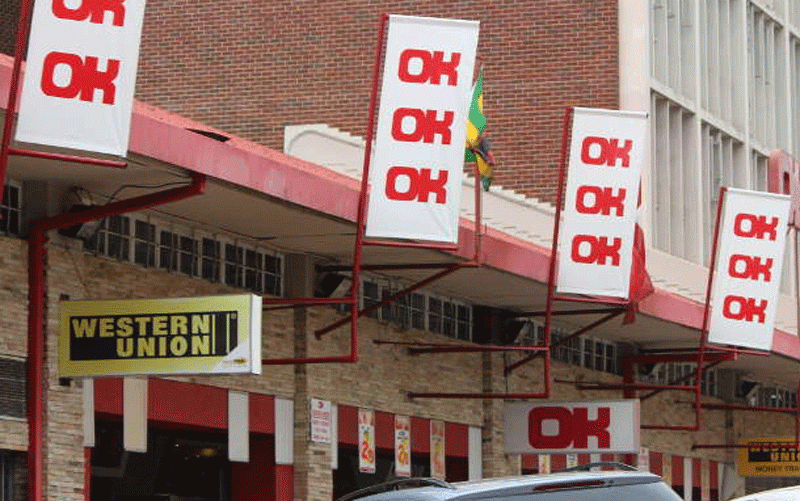
OK Zimbabwe released an interesting set of financial results this week, but which should also wake the authorities up to issues facing the rest of the country.
The retail chain is one of the largest in the country with over 60 outlets, so its experiences reflect the dilemma facing retailers and many formal businesses.
Chief executive Max Karombo opened up to analysts on the challenges facing the formal retail sector.
“Our major issue is the currency framework.
“With the passing of the elections and a new Cabinet being set, we really look forward to resolving this issue for the country to put us on a footing of assured stability,” Karombo said.
The big supermarket chains are facing a number of issues: Last year, the government lifted restrictions on the import of basic commodities in an effort to drive down prices and reduce pressure on the local unit.
The government also them to sell their stock at the official exchange rate, while they have to pay regulatory and local authority rates and endure other vicissitudes, such as power cuts.
As a result, their goods are more expensive.
- Kasukuwere dares Mnangagwa
- Kasukuwere dares Mnangagwa
- Chiefs to supervise food aid distribution
- Graft 'bleeding' ZimStat
Keep Reading
This has seen customers flocking to the informal traders, or tuck shops.
For example, at the current official exchange rate, the price of bread amounts to about US$1,30 in some of the larger retailers, but costs between 70 cents to a dollar in the tuck shops.
To guarantee payment in US dollars, most local manufacturers and suppliers now sell their goods directly to the informal traders, who are well stocked, do not pay taxes and are more affordable as a result.
OK’s sales volumes have been falling: In the three months to June, they dropped 16% compared to the previous quarter, and were 22% lower over the same period last year.
In the year to March, the volumes fell 8% overall.
While the tuck shops and other informal traders charge exclusively in US dollars, OK Zimbabwe said only 20% of its sales are in that currency.
“It has been an interesting watch as perhaps; most formal retailers now are battling for survival.
“The rise of the unregulated informal operators, who are mostly arbitraging, has caused more headaches than good for the formal guys like OK Zimbabwe, TM Pick n Pay, Gain Cash & Carry and so many more,” OK Zimbabwe said.
“This has created a whole new spate of dangerously unhealthy competition.”
Perhaps it is time the authorities relook at the currency regime to stop the sector from folding altogether.






